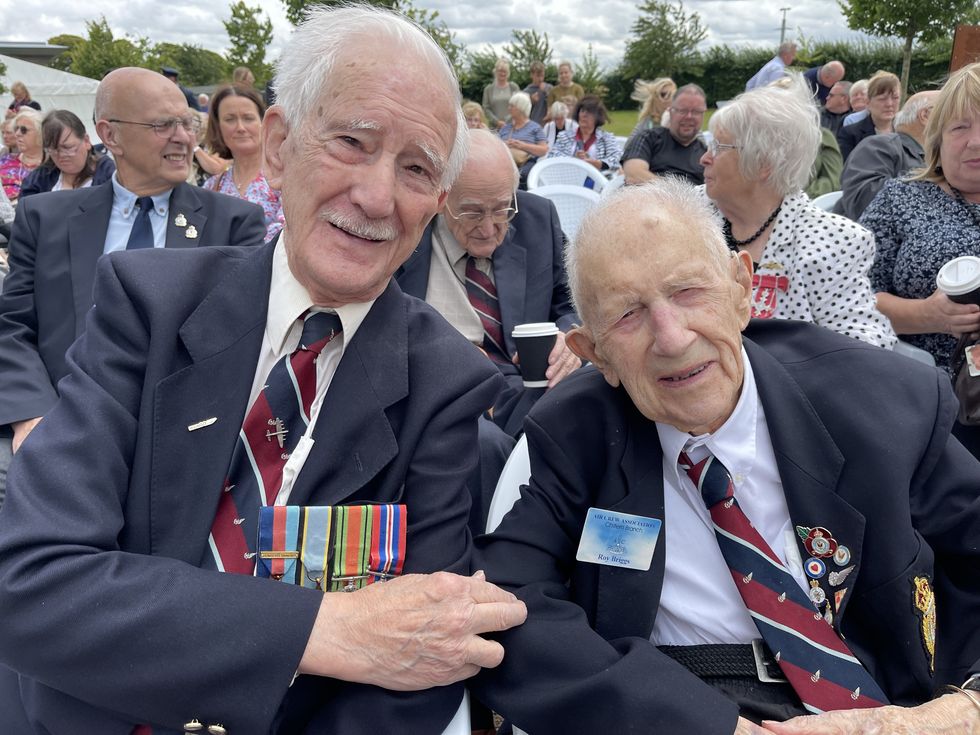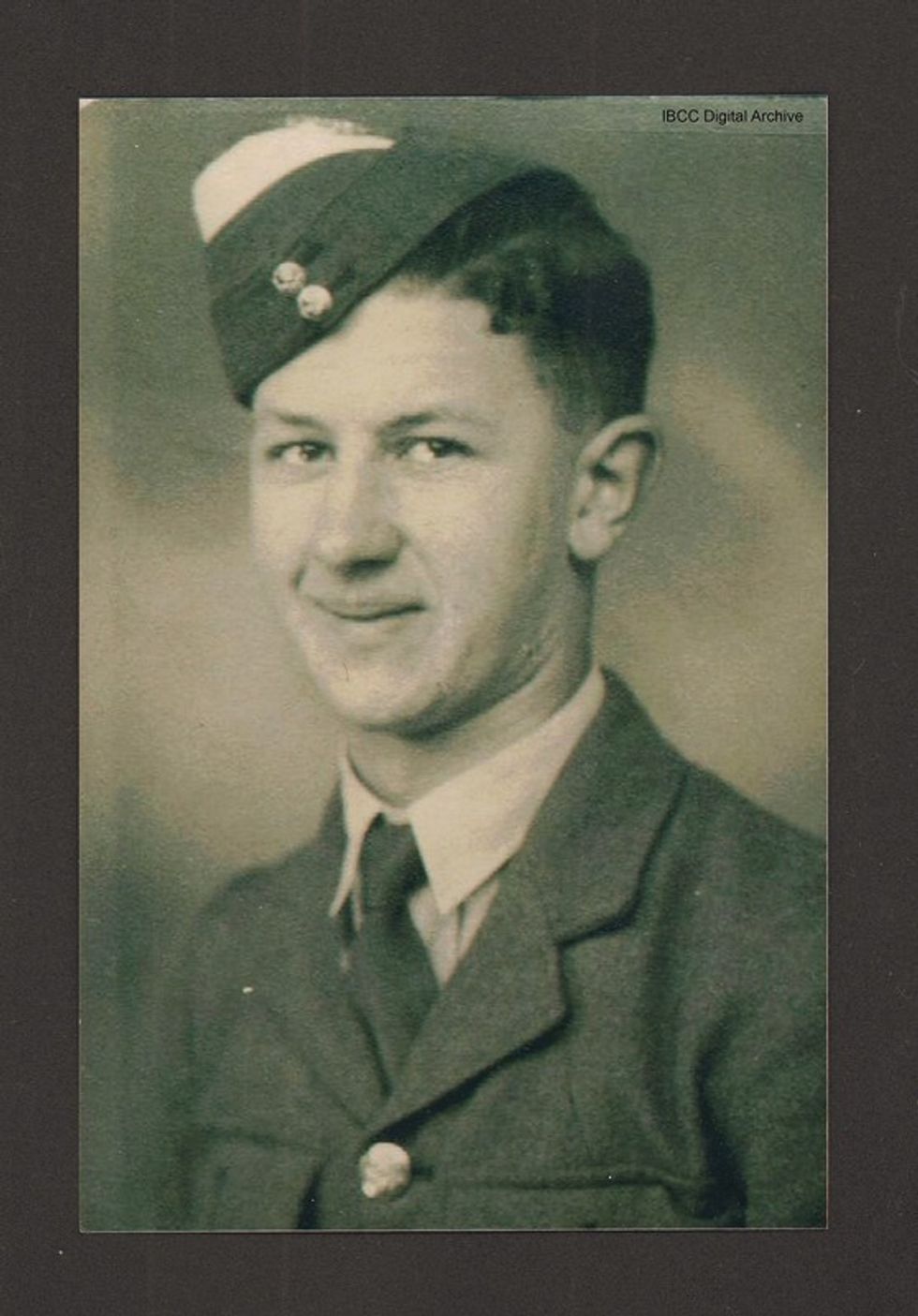The Last Post and Act of Remembrance were observed by more than 100 guests with a flypast from pair of RAF Typoons to finish
Don't Miss
Most Read
Trending on GB News
A 99-year-old veteran who flew perilous missions behind enemy lines during the Second World War has remembered the strangeness of his role serving in a bomber aircrew.
Roy Briggs, who lives in Hemel Hempstead, was 20 years old when he first flew a bombing mission in an Avro Lancaster.
“The first time we really ran into flack I couldn’t believe it,” he said.
“I thought, ‘is this me or am I dreaming?’ A 20-year-old boy from the backstreets of Battersea flying over Germany in a Lancaster.”
On Thursday, Roy joined other veterans and serving members of the air force at the International Bomber Command Centre in Lincoln for a memorial service on ‘Bomber Command Day’.
The Last Post and Act of Remembrance were observed by more than 100 guests with a flypast from pair of RAF Typoons to finish.

Eddie Hulme, 102, and Roy Briggs, 99
Some 58,000 people died serving with or supporting the section of the air force which was formed from the crew of 62 countries and remained for decades after the war.
The names more than 50,000 people who serve in Bomber Command are remembered on the memorial walls at the IBCC in Lincoln.
Roy served as a Wireless Operator with 576 Squadron at Fiskerton, based five miles frome Lincoln Cathedral.
His war years took him across the skies of Europe.
On the 18th april 1945 he flew the last of the thousand bomber raids on Heligoland, targeting German U-Boats.
In the final days of the war, Bomber Command was utilised for the first airborne humanitarian mission, dropping food parcels to millions of starving civilians in Netherlands.

Roy Briggs was 20 years old when he first flew a bombing mission in an Avro Lancaster
IBCC Digital Archive
“The part that I most remember now is Operation Manna when we dropped food over Holland,” Roy said.
“We did 6 trips: 3 on Rotterdam, 1 on the Hague, 1 on Delft, and 1 on Valkenburg airfield.”
He continued, “Some years later I met a lady who was a schoolgirl in Holland when we dropped food."
“We’ve been friends ever since.”
He was returning from a mission when he learned the war was ending.
“We were going to drop food in the afternoon,” he said. “Before we took off, we heard Mr Churchill was going to make a statement in the Commons.”
“We were on the way back and I tuned into the BBC and I heard him say tomorrow will be VE Day. I was able to tell the crew our war was over in Europe.”
In years since, Bomber Command has faced criticism for deadly attacks inflicted upon German civilians.
“We had to live with the fact that, although we didn’t know it, wed’ killed women and children. I’m not very proud of that but it was a different time.”
“Our street was bombed in November 1940 so we knew what it was like.”
Roy sees parallels between what Germany did in the 1930’s and Russia in Ukraine today.
“Our country has let the forces get that low that it will be ‘39 all over again. We’ll have to build up quick – if we’ve got time. You’ve got to be ready for it, as a deterrent.”









